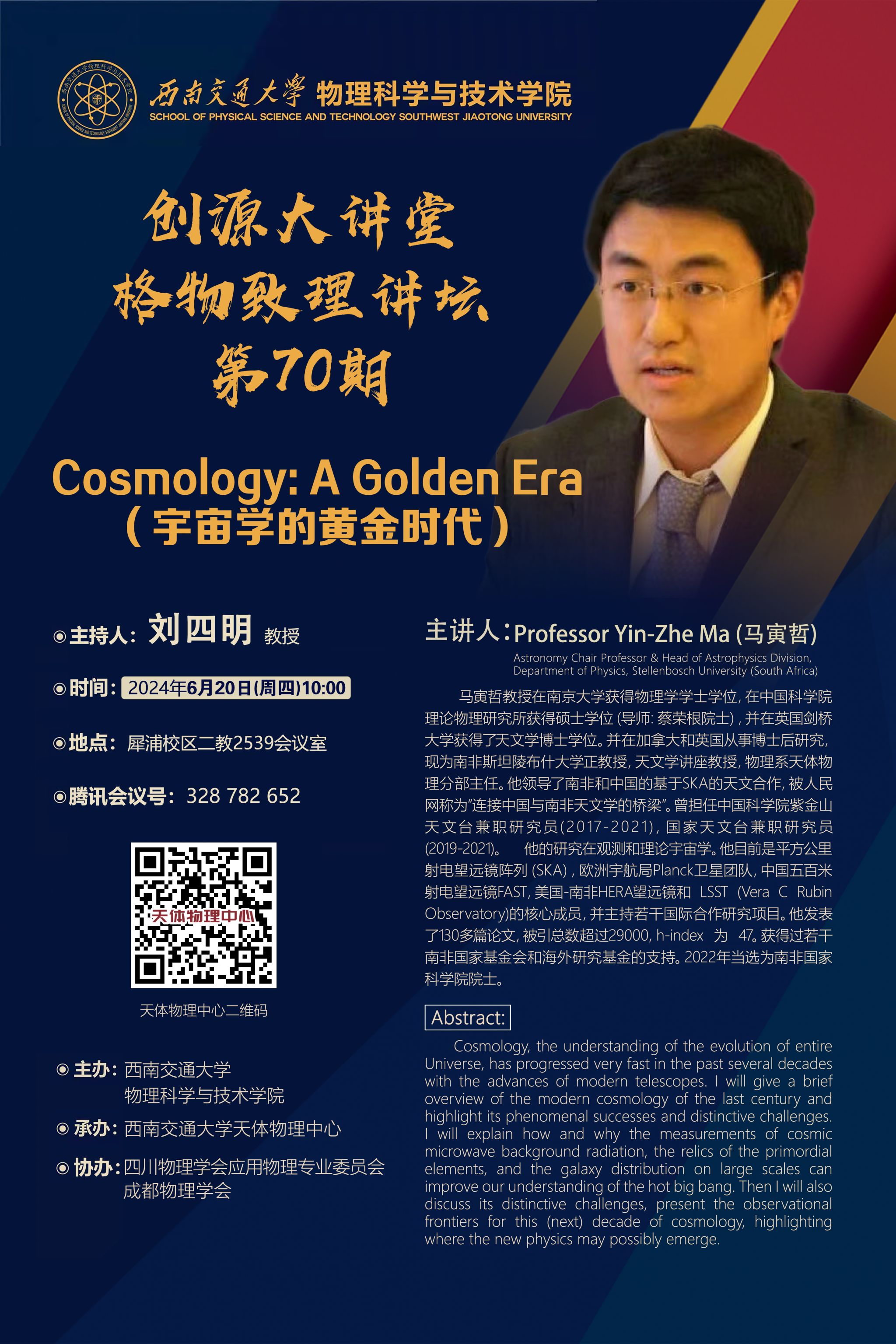主持人:刘四明 教授
时间:2024年6月20日(周四)10:00
地点:犀浦校区二教2539会议室
腾讯会议号:328 782 652
题目:Cosmology: A Golden Era(宇宙学的黄金时代)
主讲人:Professor Yin-Zhe Ma (马寅哲)
Astronomy Chair Professor & Head of Astrophysics Division, Department of Physics, Stellenbosch University (South Africa)
马寅哲教授在南京大学获得物理学学士学位,在中国科学院理论物理研究所获得硕士学位(导师:蔡荣根院士),并在英国剑桥大学获得了天文学博士学位。并在加拿大和英国从事博士后研究,现为南非斯坦陵布什大学正教授,天文学讲座教授,物理系天体物理分部主任。他领导了南非和中国的基于SKA的天文合作,被人民网称为“连接中国与南非天文学的桥梁”。曾担任中国科学院紫金山天文台兼职研究员(2017-2021),国家天文台兼职研究员(2019-2021)。他的研究在观测和理论宇宙学。他目前是平方公里射电望远镜阵列(SKA),欧洲宇航局Planck卫星团队,中国五百米射电望远镜FAST,美国-南非HERA望远镜和LSST (Vera C Rubin Observatory)的核心成员,并主持若干国际合作研究项目。他发表了130多篇论文,被引总数超过29000,h-index 为 47。获得过若干南非国家基金会和海外研究基金的支持。2022年当选为南非国家科学院院士。
Abstract: Cosmology, the understanding of the evolution of entire Universe, has progressed very fast in the past several decades with the advances of modern telescopes. I will give a brief overview of the modern cosmology of the last century and highlight its phenomenal successes and distinctive challenges. I will explain how and why the measurements of cosmic microwave background radiation, the relics of the primordial elements, and the galaxy distribution on large scales can improve our understanding of the hot big bang. Then I will also discuss its distinctive challenges, present the observational frontiers for this (next) decade of cosmology, highlighting where the new physics may possibly emerge.
